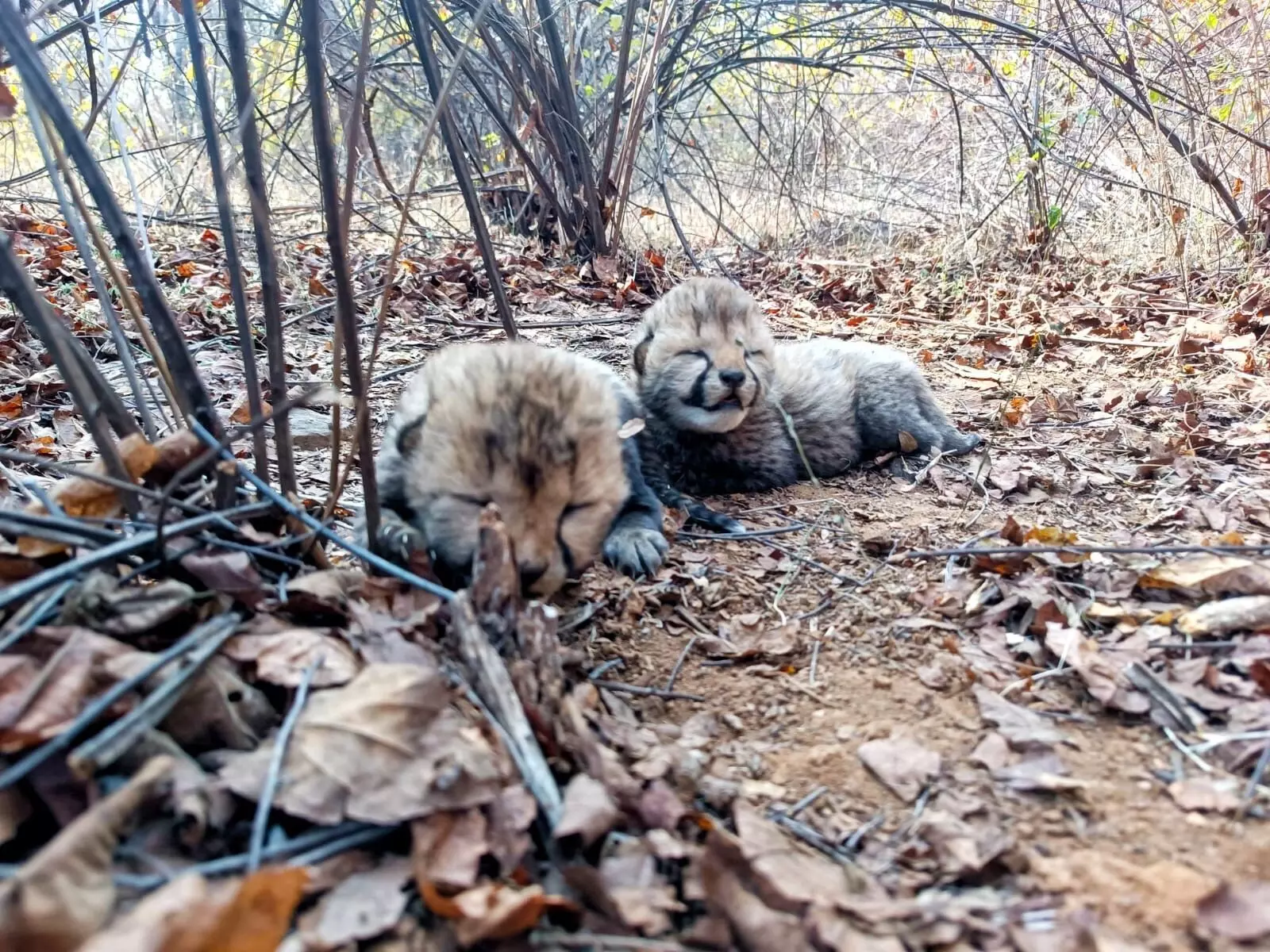Madhya Pradesh's 'Jungle Book': Kuno National Park welcomes two Cheetah cubs
Cheetah, the fastest land animal, was declared extinct in the country in 1952
By Sri Lakshmi Muttevi
Madhya Pradesh's 'Jungle Book': Kuno National Park welcomes two Cheetah cubs
Madhya Pradesh: Madhya Pradesh's Kuno National Park welcomed two cubs born to Cheetah Veera on February 3. The total number of cheetahs, including cubs, in Kuno, are now 26 with 12 adult cheetahs and 14 cubs.
CM Mohan Yadav announced the birth of two cheetah cubs at Kuno National Park, highlighting the state's commitment to wildlife conservation.
Sharing pictures of the two cheetah cubs on X, Mohan Yadav said, "Kuno National Park echoed again with the shrieks of little cheetahs. Two cheetah cubs mark their entry in Madhya Pradesh's 'Jungle Book'. I am very happy to share the information that the number of cheetahs is continuously increasing in Madhya Pradesh. Today, a female cheetah Veera gave birth to 2 little cubs. We welcome cheetah cubs on the land of Madhya Pradesh and I extend my greetings to the people of the state on the arrival of these little cubs,".
Project Cheetah:
Cheetah, the fastest land animal, was declared extinct in the country in 1952. The relocation of cheetahs from Africa and Namibia is part of the government's ambitious plan to revive their population in the country.
As part of the first-ever intercontinental translocation of the big cats, 20 cheetahs have been brought to the Kuno National Park in Madhya Pradesh so far -- eight from Namibia in September 2022 and 12 from South Africa in February 2023.
Jwala, Aasha, and Siyaya are among the cheetahs translocated to India from Namibia under Prime Minister Narendra Modi's 'Project Cheetah', aimed at re-introducing the only large carnivore species that went extinct in independent India.
On January 3, 2024, Namibian cheetah Aasha had given birth to three cubs. Before this, a cheetah named Siyaya had given birth to four cubs. However, only one of them survived.
Since they arrived in India, eight adult cheetahs -- three females and five males -- have died.
Seventeen cubs have been born in India, with 12 surviving, bringing the total number of cheetahs, including cubs, in Kuno to 24. Currently, all are in enclosures. The grand initiative completes two years on September 17.
In May 2023, while voicing concern over the death of the big cats, the Supreme Court asked the Union government to file a detailed affidavit explaining the reasons behind the deaths and remedial measures taken to prevent the deaths
The long-term goal is to establish a metapopulation of 60-70 cheetahs in the Kuno-Gandhisagar landscape.
Medicines given to prevent infection:
Due to differences in circadian rhythms between the Northern and Southern Hemispheres, some cheetahs developed thick winter coats during the Indian summer and monsoon last year, in anticipation of the African winter (June to September).
A female named Tbilisi (from Namibia) and two South African males, Tejas and Sooraj died due to septicemia, an infection that occurs when bacteria enter the bloodstream and spread. This condition arose from wounds under the cheetahs' thick winter coats on their backs and necks, which became infested with maggots and led to blood infections, according to the government's annual report on Project Cheetah.
In July 2023, the radio collars of six cheetahs were removed for their “health examination” by veterinarians from the KNP and experts from Namibia and South Africa.
A film on cheetahs:
The National Tiger Conservation Authority (NTCA) has approved a proposal for the filming of a four-part web series on Project Cheetah to "showcase the efforts of the country to the world". According to the proposal, the web series will be aired on Discovery Network in 170 countries in different languages. The film aims to highlight the conceptualization of Project Cheetah, the struggles faced in bringing the animal back to India, the status of the cheetahs, and the expectations for the future.